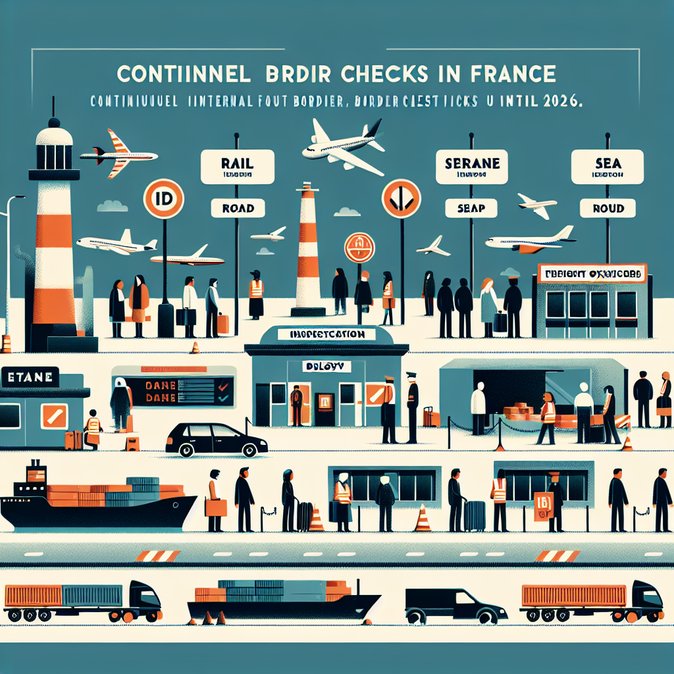
The French government has formally notified the European Commission that it will prolong internal border checks at all land, sea and air frontiers until 30 April 2026. The measure, in force since May 2024, affects crossings with Belgium, Germany, Luxembourg, Switzerland, Spain and Italy. Officials cite ‘persisting terrorist threats, organised crime and irregular migration pressures’ as legal grounds under the Schengen Borders Code.
For cross-border commuters and logistics operators, the decision means at least six more months of possible spot checks, longer queues and higher compliance costs. Freight carriers on the busy A1 Lille–Brussels and A35 Strasbourg–Basel corridors should anticipate delays, especially during peak freight hours. Passenger-car traffic could also face intensified scrutiny around major events such as Easter and the Paris 2026 Youth Olympic Festival.
![Paris Extends Internal Schengen Border Controls to 30 April 2026]()
Business-travel managers must update itineraries to include buffer time at land borders and factor in potential ID inspections on domestic flights routed through Schengen-externalised zones like Corsica. Companies with posted-worker populations should remind staff to carry both passports and A1 certificates when driving across borders for day trips.
Politically, Paris is walking a fine line. The European Commission has warned member states against ‘permanent exceptionalism’; yet other countries—Germany, Austria, Denmark—maintain similar controls. Analysts note that France’s six-month extension dovetails with its new Entry/Exit System (EES) roll-out, allowing authorities to test biometric kiosks while retaining manual fallback at checkpoints.
Industry groups, led by the European Road Hauliers Association, are lobbying for dedicated “green lanes” for trucks and coach services to mitigate economic fallout. No such exemptions are yet confirmed, but the interior ministry says it will ‘seek to minimise disruption to the single market’, hinting at operational guidance before the Christmas peak.
For cross-border commuters and logistics operators, the decision means at least six more months of possible spot checks, longer queues and higher compliance costs. Freight carriers on the busy A1 Lille–Brussels and A35 Strasbourg–Basel corridors should anticipate delays, especially during peak freight hours. Passenger-car traffic could also face intensified scrutiny around major events such as Easter and the Paris 2026 Youth Olympic Festival.

Business-travel managers must update itineraries to include buffer time at land borders and factor in potential ID inspections on domestic flights routed through Schengen-externalised zones like Corsica. Companies with posted-worker populations should remind staff to carry both passports and A1 certificates when driving across borders for day trips.
Politically, Paris is walking a fine line. The European Commission has warned member states against ‘permanent exceptionalism’; yet other countries—Germany, Austria, Denmark—maintain similar controls. Analysts note that France’s six-month extension dovetails with its new Entry/Exit System (EES) roll-out, allowing authorities to test biometric kiosks while retaining manual fallback at checkpoints.
Industry groups, led by the European Road Hauliers Association, are lobbying for dedicated “green lanes” for trucks and coach services to mitigate economic fallout. No such exemptions are yet confirmed, but the interior ministry says it will ‘seek to minimise disruption to the single market’, hinting at operational guidance before the Christmas peak.










